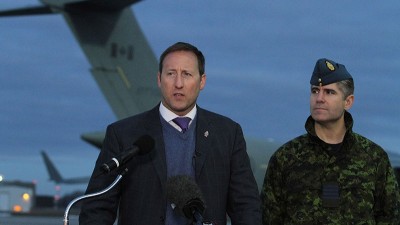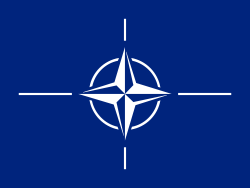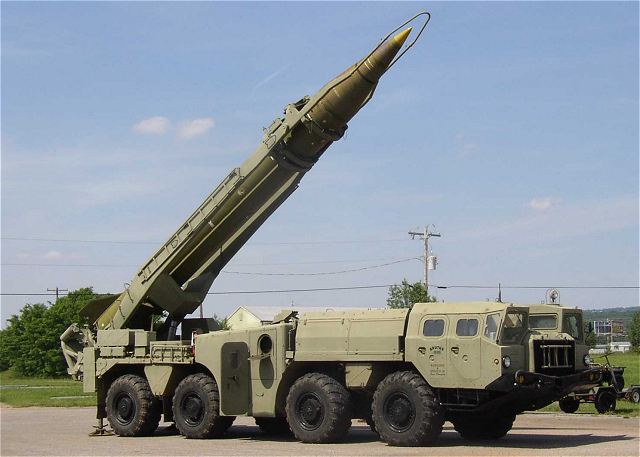Since the conflict in Mali began, the Canadian government has remained committed to its position of non-intervention. On January 23, 2013, Canadian Prime Minister Stephen Harper stated, “I do think it is important to help this mission. At the same time, I think we’ve been very clear, and I think this reflects Canadian opinion that, while we’re prepared to help, we don’t want to see a direct Canadian military mission to Mali.” Despite the swift successes of the French military in pushing back militants since their arrival in January, many are still fearful that the conflict will devolve into a drawn-out Afghan-style insurgency. The Canadian government is especially weary of this possibility.
Canadian Minister of Foreign Affairs John Baird stated to a parliamentary committee on February 12. “I am very cautious about sending in potentially thousands of Canadian troops to Malian soil… to what is already amounting to a counter-insurgency. We’re not at the drop of a hat going to get into another Afghanistan.” When questioned about the possibility of sending peacekeepers, Baird replied l that, “on one side we have a military government that took power in a coup last year and on the other side an Al-Qaeda affiliate. I don’t think they’re going to sign on for a peacekeeping mission.” Despite these stark words regarding Canadian troop involvement, the government has been committed to supporting French efforts. Since January, Canada has been committing a C-17 Globemaster transport plane to support French troops, and has since extended this commitment to as long as need be.
[captionpix align=”left” theme=”elegant” width=”300″ imgsrc=”http://natoassociation.ca/wp-content/uploads/2013/04/image-e1366652917760.jpeg” captiontext=”Canadian Minister of National Defence Peter McKay speaking during a conference at CFB Trenton with a C-17 Globemaster transport plane in the background”]
Although some criticized the distant nature of Canadian involvement, these criticisms have been unsubstantiated. The goal from the outset as been to establish intervention in Mali as a regional affair. The coalition of neighboring countries participating in the African-led International Support Mission to Mali (AFISMA) was authorized through a UNSC resolution for a one-year period. NATO Secretary-General Anders Fogh Rasmussen has commended NATO countries for choosing to assist France in various capacities, including American drone expertise. He has however stressed that he does not see a role for NATO as the UNSC has clearly defined the operation as an AFISMA operation.
The ongoing conflict has proven Baird’s concerns about the conflict turning into a potential quagmire. Paris has been clear in its intentions to initiate troop withdrawal, but Mali’s army has not been able to suppress the rebels. Trying to help Mali’s weak army oppose bombings and raids from the militants is a serious need to ensuring Malian stability, especially given the alarming state of the Malian army. When the Tuareg separatists engaged the demoralized Malian army last year, the army quickly collapsed before initiating a coup d’état. The EU has committed to a 15-month plan to train the Malian army, but French General Lecointre is concerned that a potentially longer-term commitment is necessary to effectively reconstruct the army.
Commenting on the Malian army, Lecointre said, “It has been under-equipped, badly paid, badly trained.” The military collapse against the Tuareg offensive has shown that, “what might have seemed at the start like a short-term training mission of the Malian army is really a fundamental, absolutely necessary action.” Mali’s army chief General Dembele claimed the military was in “crisis” and having the capacity to face the internal threats that plague the country is a “medium-term” objective. The AFISMA spokesman, whose troops are primarily in the South of the country are also not ready to take over. Ivorian Colonel Adjoumani Yao believes that AFISMA will, “be able to secure the country soon.” African inability to assure sustained security could seriously undermine current French exit plans. As a decade of experience in Afghanistan has shown us, providing recruit training is insufficient for dealing with Islamic extremists and their non-traditional military tactics.
[captionpix align=”right” theme=”elegant” width=”300″ imgsrc=”http://natoassociation.ca/wp-content/uploads/2013/04/RVR07-PHILIPPINES+.jpg” captiontext=”Since the French-led mission began the Harper government has been a strong contributor of humanitarian aid, but has remained firm in its decision not to contribute troops”]
French and Malian troops have been employing counter-insurgency tactics to better combat rebel infiltration behind the frontlines. A document discovered by French troops outlined strategies for avoiding drones and various other military strategies to use against superior French forces.The document, which was originally drafted by a Yemeni, is increasingly seen as demonstrative of the interconnectedness between Ansar Dine militants in Mali and other Al-Qaeda affiliates across the region. Through these channels, the sharing of expertise is clearly underway as Malian militants are adopting asymmetric insurgency tactics through guerilla warfare. Frequent eruptions of violence in past months have shown large swathes of the country are far from being safe and secure. AFISMA is also trying to appeal to local populations to denounce suspected rebels and welcome the foreign troops. Around 8,000 troops from neighboring African countries including Chad, Niger, Nigeria Togo and Senegal have been sent to Mali as part of AFISMA but have largely remained in the Southern part of the country away from the intense fighting in the North.
Additionally, humanitarian concerns have exacerbated to the conflict’s increasingly problematic nature. On February 22, Jean-Nicolas Marti, head of the International Committee of the Red Cross regional delegation to Mali, expressed legitimate concerns that in the coming months, and potentially years the current asymmetric conflict developing will establish a precarious security situation that denies populations access to much needed services. These problems are especially acute for poverty stricken Mali, which is 175th on the list of 187 nations in the United Nations’ Human Development Index. Marti warned of the need for prepositioning emergency medical assistance in the face of pockets of violence, landmines, suicide attacks and possible ethnically motivated Malian security force retaliation. A UN official who recently visited Mali’s expansive North reported many stories of the militants’ brutality as the reason so many Malians are fearful to return. Recognizing the developing complications, Canadian Minister for International Co-operation, Julian Fantino travelled to an international donors conference in Addis Ababa, Ethiopia to address the capacity building needs of a desperately weak Malian army and the African-led support mission in Mali. Fantino pledged $13 million in aid, but the Canadian government was reluctant to contribute to the African-led International Support Mission to Mali (AFISMA). The endless emerging complications in February have given further credence to the Canadian government’s continued position.
French casualties have been minimal with the majority of rebels scattering into the expansive dessert. With the intense fighting on the decline, there is increasing pressure for the involvement of a UN sanctioned peacekeeping mission to alleviate French military involvement. Although Canada has been involved in discussions regarding its potential role in a mission, the Harper government has remained steadfast in its unwillingness to be involved in any direct military mission. The Canadian government clearly remains wary of the conflict’s complexity. After the Islamic militants are defeated, the Malian government will have the daunting challenge of coming to some kind of resolution with the Berbers who occupy the North of the country. Although hijacked by Islamic extremists, it was the nomadic Tuaregs who first initiated the war of independence in January of last year. It will also have to do this amidst Presidential and Legislative elections scheduled for July to replace the current unelected government. Canada has provided development assistance for 40 years, but it is clear that giving troops blue helmets will not ensure troop security. Unless Canadian assets or interests in the country are directly attacked, the government’s position of having no boots on the ground will not change.



